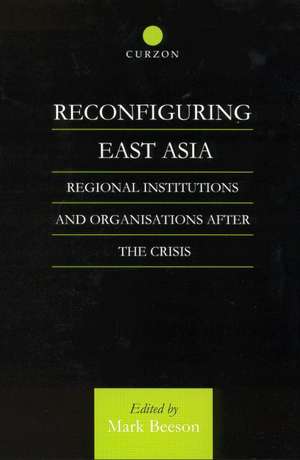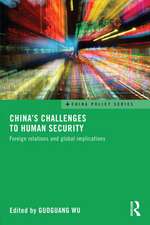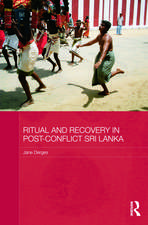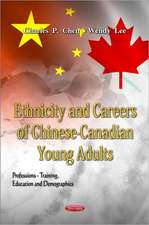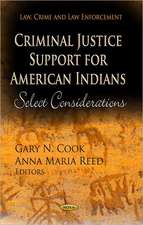Reconfiguring East Asia: Regional Institutions and Organizations After the Crisis
Autor Mark Beesonen Limba Engleză Paperback – 21 feb 2002
| Toate formatele și edițiile | Preț | Express |
|---|---|---|
| Paperback (1) | 468.36 lei 6-8 săpt. | |
| Taylor & Francis – 21 feb 2002 | 468.36 lei 6-8 săpt. | |
| Hardback (1) | 1389.71 lei 6-8 săpt. | |
| Taylor & Francis – 21 feb 2002 | 1389.71 lei 6-8 săpt. |
Preț: 468.36 lei
Nou
Puncte Express: 703
Preț estimativ în valută:
89.63€ • 93.01$ • 74.92£
89.63€ • 93.01$ • 74.92£
Carte tipărită la comandă
Livrare economică 15-29 martie
Preluare comenzi: 021 569.72.76
Specificații
ISBN-13: 9780700714780
ISBN-10: 0700714782
Pagini: 288
Dimensiuni: 156 x 234 x 22 mm
Greutate: 0.43 kg
Ediția:New.
Editura: Taylor & Francis
Colecția Routledge
Locul publicării:Oxford, United Kingdom
ISBN-10: 0700714782
Pagini: 288
Dimensiuni: 156 x 234 x 22 mm
Greutate: 0.43 kg
Ediția:New.
Editura: Taylor & Francis
Colecția Routledge
Locul publicării:Oxford, United Kingdom
Recenzii
'It serves as an ideal text not only for Asia Pacific regional studies but for those analysts who seek a deeper understanding the implications of globalsiation and forms of capitalist political and economic regulation.' - Australian Journal of International Affairs
'As a study on ideas and institutional evolution, as much as on East Asia, the volume is a powerful argument for considering how the past constrains the present, how local ideas and institutions ensure that the effects of even hegemonic forces will not be uniform, and how heterogeneity will remain a persistent feature fo global politics.' - The Journal of Asian Studies
'It serves as an ideal text not only for Asia-Pacific regional studies but for those analysts who seek a deeper understanding of globalisation and of competing forms of capitalist political and economic regulation.' - Australian Journal of International Affairs
'As a study on ideas and institutional evolution, as much as on East Asia, the volume is a powerful argument for considering how the past constrains the present, how local ideas and institutions ensure that the effects of even hegemonic forces will not be uniform, and how heterogeneity will remain a persistent feature fo global politics.' - The Journal of Asian Studies
'It serves as an ideal text not only for Asia-Pacific regional studies but for those analysts who seek a deeper understanding of globalisation and of competing forms of capitalist political and economic regulation.' - Australian Journal of International Affairs
Notă biografică
Mark Beeson is Senior Lecturer in the School of Asian and International Studies, Griffith University. His research interests are centred on the way globalisation has affected the political economy of the broadly conceived Asia-Pacific region.
Cuprins
Notes on Contributors Acknowledgements List of Abbreviations List of Figures List of Tables Introduction 1. Theorising Institutional Change in East Asia Mark Beeson Part I. Institutions 2. Developmental States in Crisis S. Javed Maswood 3. The East Asian Financial Crisis: Midwife to a Movement? Nicola Bullard 4. The Implications of the Asian Crisis for Media Control in Asia Gary Roddan 5. Social Security Institutions in Southeast Asia after the Crisis Mukul G. Asher 6. The Rule of Law and Governance in East Asia Kanishka Jawasuriya 7. Social Movement Unionism in East Asia? Regional and South Korean Union Responses to the Crisis Patricia Ranald 8. Capitalism in East Asia: The Political Economy of Business Organisation in Japan, Korea and China Mark Beeson and Leong Liew Part II. Organisations 9. The ASEAN Regional Forum: Material and Ideational Dynamics Cameron J. Hill and William T. Tow 10. ASEAN: The Challenges of Organisational Reinvention Mark Beeson 11. The Asian Development Bank: Time to Wind It Up? Edward J. Lincoln 12. Institutional Evolution at the Trans-Regional Level: APEC and the Promotion of Liberalisation John Ravenhill 13. Conclusion: The More Things Change? Path Dependency and Convergence in East Asia Mark Beeson Index
Descriere
Focuses both on specific regional organizations like ASEAN, The Asian Development Bank and APEC, as well as on key institutions such as East Asian legal systems, the media, organized labour, Asian business systems, and the developmental state.
